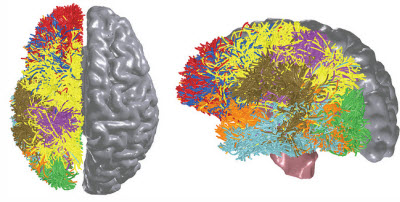In a groundbreaking development that could potentially redefine the landscape of brain cancer treatment, researchers at Northwestern University have achieved a significant milestone: for the first time in human trials, a chemotherapy drug has successfully reached the brain. This remarkable feat not only demonstrates a leap forward in medical science but also holds the promise of unlocking new possibilities for combating one of the most challenging frontiers of cancer treatment. Join us as we delve into the intricate world of nanoparticles, blood-brain barrier permeation, and the immense impact this breakthrough could have on the lives of countless patients.
The human brain, an intricately designed fortress safeguarded by a formidable defense system known as the blood-brain barrier (BBB), has long posed a formidable challenge in treating brain tumors. The BBB acts as a selective gateway, allowing essential nutrients and molecules to enter the brain while keeping out potentially harmful substances, including many chemotherapy drugs. This barrier, while vital for normal brain function, has hindered the effectiveness of cancer treatments, limiting their ability to reach the tumor site.
However, a team of brilliant researchers at Northwestern University has engineered a revolutionary approach to breach this barrier. Harnessing the power of cutting-edge nanotechnology, they have developed a breakthrough drug delivery system utilizing nanoparticles to transport chemotherapy drugs across the BBB.
The process involves encapsulating chemotherapy drugs within tiny nanoparticles, typically ranging from 1 to 100 nanometers in size. These nanoparticles are carefully designed to traverse the BBB, leveraging properties such as size, surface charge, and surface modifications to navigate the complex network of cells that form the barrier. Once they successfully breach the BBB, the nanoparticles release their cargo directly into the brain, targeting the tumor cells with unprecedented precision.
The human trial, conducted with patients suffering from glioblastoma, an aggressive form of brain cancer, yielded promising results. The chemotherapy drug, previously unable to penetrate the BBB effectively, reached the tumor site in significant concentrations. This breakthrough opens up new horizons for more effective treatment strategies, potentially enhancing patient outcomes and quality of life.
The implications of this milestone are profound, offering a glimmer of hope for patients grappling with the devastating impact of brain cancer. By circumventing the limitations imposed by the blood-brain barrier, this nanoparticle-based drug delivery system holds immense potential for enhancing the effectiveness of chemotherapy, reducing tumor size, and improving patient prognosis.
However, it is essential to acknowledge the technical complexities involved in translating this breakthrough from the lab to clinical applications. Further research and refinement are necessary to optimize the nanoparticle design, ensuring their safety, efficacy, and long-term effects. Challenges such as dosage, nanoparticle stability, and potential side effects demand meticulous attention as the scientific community continues to explore and refine this innovative treatment approach.
As we stand on the precipice of a new era in brain cancer therapy, it is vital to recognize the collaborative efforts of scientists, researchers, and medical professionals who tirelessly strive to conquer the formidable challenges of this devastating disease. Their dedication and groundbreaking discoveries bring us closer to a future where brain cancer may no longer hold the same grim prognosis.
While the journey towards widespread clinical application of this nanoparticle-based drug delivery system is still underway, the possibilities it presents are awe-inspiring. As researchers continue to unravel the intricate workings of the human brain and develop innovative strategies to combat its diseases, we can dare to envision a world where brain cancer becomes a conquerable foe, and patients find renewed hope in the face of adversity.
